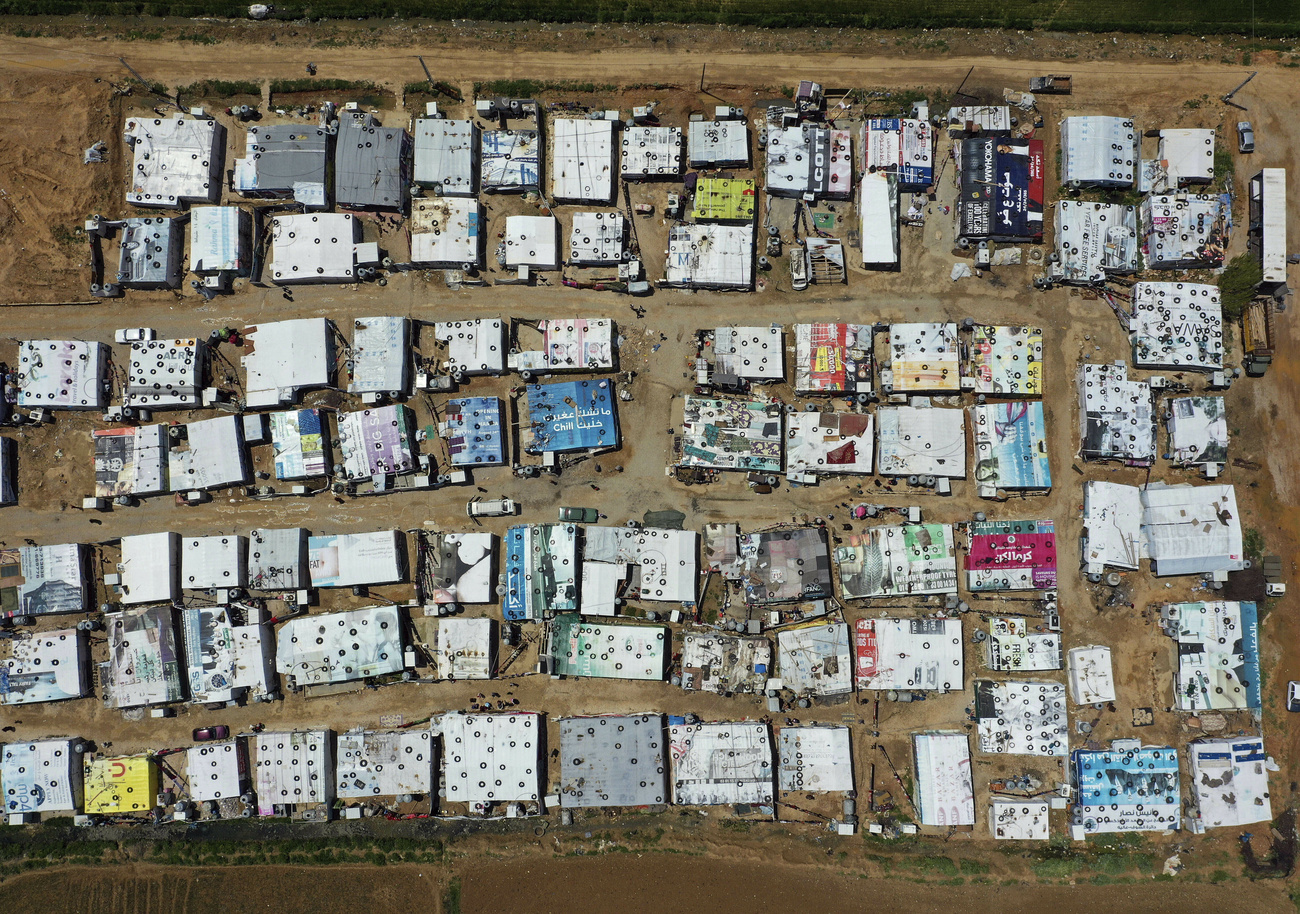
Canton Vaud cracks down on building site transgressions

Canton Vaud is at the forefront of attempts to combat illegal working practices in the construction sector. And with good cause. Over 70 per cent of building sites inspected there have been found to be breaking the law.
The problem was considered serious enough for Vaud to create a special commission and appoint two inspectors to check the legality of the building sites. The canton proudly claims to be the first to have the means to carry out an effective fight against illegal work in the construction sector.
While other cantons, notably Geneva and Valais, have similar commissions, the one in Vaud is the only one that includes members of the cantonal government, employers’ organisations, trade unions and the national accident insurance fund.
“We are fighting moonlighting because it is tax evasion, because social contributions are not paid, and because it amounts to unfair competition. Some companies are extremely competitive because they pay a starvation wage,” says the head of the commission, Thérèse de Meuron.
She adds that the risk of accidents is also increased, as corners are cut when one is working illegally.
“But above all, it is a moral and ethical question. We simply cannot allow this kind of situation to continue,” she told swissinfo.
It is difficult to judge the scale of the problem, but it is estimated that illegal workers in Vaud are costing the canton almost SFr9 million ($5 million) in lost tax and the national accident insurance fund is missing out on over SFr6 million ($3.35 million).
The head of the commission says the problem has not been caused by a lack of work permits. She says all requests for work permits in the construction sector have been granted.
“The number of permits we are prepared to grant is greater than the demand. It is simply that the employers are not making requests,” de Meuron says.
Construction is not the only sector where the use of illegal workers is common. Things are probably much worse in the hotel and restaurant trade, and in agriculture.
Vaud has approved funding for a similar inspection system for hotels and restaurants, but has found it harder to reach agreement with employers in this sector
The two construction inspectors, Daniel Sansonnens and Pascal Josseron, began their work in April 1998. In their first 500 days, they carried out 586 checks on building sites and discovered 422 people working illegally.
Eighty-eight of these were illegal immigrants, 220 were working without the knowledge of their regular employer and 82 without the required authorisation.
“We were surprised at how widespread this kind of illegal work was,” de Meuron says.
But she points out that although 72 per cent of construction sites inspected were found to be illegal, this does not mean that almost three-quarters of sites in the canton are on the wrong side of the law.
As there are only two inspectors covering a relatively large canton, they tend to concentrate on those sites that arouse suspicions. Around a quarter of their inspections are as a result of tip-offs.
Their job is not only to track down clandestine workers. Their task is to guarantee that everybody – workers and employers – is abiding by the work convention drawn up by local employers and trade unions.
This includes strict safety measures, regulations on weekend and evening work and a minimum wage of SFr23 ($12.85) an hour. Sansonnens and Josseron have found illegal immigrants working for as little as SFr12 ($6.7) and hour.
Illegal immigrants may well be sent back to their homelands, but the employers will be forced to pay them their backdated wages in full. They are also likely to be fined by the employers’ federation, reported to the tax authorities or even taken to court.
While the first year and a half of their mission revealed a surprising level of illegal work, Sansonnens and Josseron believe it is beginning to bear fruit.
“We have certainly noticed a change in behaviour,” Sansonnens told me outside a house that was being renovated near central Lausanne.
“We inspected this company five or six times last year and found a lot of things wrong. They were using illegal immigrants from Kosovo, breaching safety regulations, and so on. This time we have found only minor infractions,” he explained. “It shows that, at least at the moment, this firm is playing by the rules.”
The workers on the site are still overwhelmingly Kosovars, but all have valid permits. The biggest problem is with two French machine operators who have permits to work in neighbouring Geneva, but not Vaud.
“We are not here just for repression. We’re here to see that the regulations are respected, to give advice to workers and companies,” Sansonnens says.
The inspectors are concerned that “wage dumping”, an influx of cheap labour, will become a serious problem when the bilateral agreement with the European Union on the free movement of labour comes into force: “I’m not sure how we are going to cope,” he says.
For the moment, Vaud is leading the way in fighting illicit work in the construction sector. But it is a battle that will perhaps never be won.
“There will always be people who want to cheat the system,” Sansonnens says. “We can reduce the amount of illegal working, but we will never stamp it out completely.”
by Roy Probert

In compliance with the JTI standards
More: SWI swissinfo.ch certified by the Journalism Trust Initiative































You can find an overview of ongoing debates with our journalists here . Please join us!
If you want to start a conversation about a topic raised in this article or want to report factual errors, email us at english@swissinfo.ch.